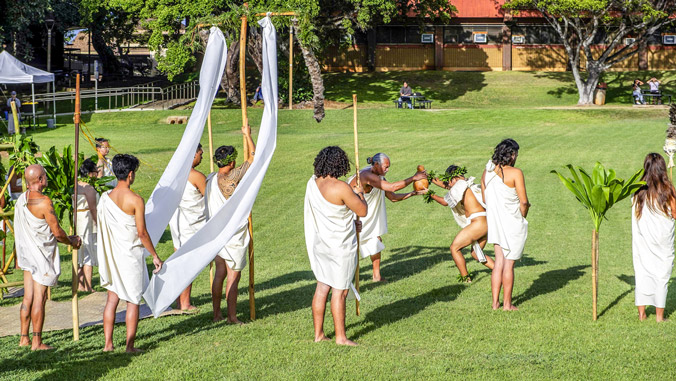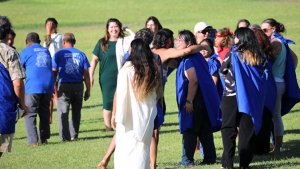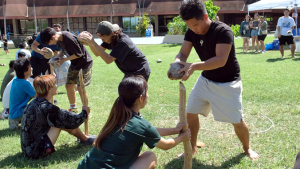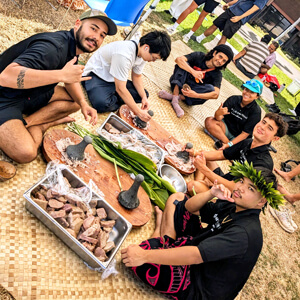
A day-long Makahiki (celebration) held at the Kapiʻolani Community College’s great lawn Makahiapo in November, honored the traditions of the Hawaiian god Lono and the natural cycles of the environment. A ceremony guided by cultural practitioner ʻUmi Kai set the tone for the day, with attendees participating in protocol and a presentation of hoʻokupu (offerings) such as lei, fresh fruits, and other biodegradable offerings.

“We honor Lono, the embodiment of life-giving rain, as water is the foundation of all life within the biosphere, nurturing growth and vitality through the flourishing of plant life upon the honua (Earth). Our celebration pays tribute to the elements of the natural order, embracing their harmony through the ceremonies and activities of this sacred festival to come.” said Kohlby Soong, Māla Māunuunu coordinator and festival chair. “Makahiki connects us to the cycles of nature, to the wisdom of our kūpuna (elders), and to one another, fostering unity, gratitude and a shared commitment to the balance and abundance of our ʻāina (land). Lonoikamakahiki (Lono of Makahiki)!”
Skills, endurance, strength, strategy

Students, faculty and staff tested their skills, endurance, strength and strategy in traditional pāʻani (games or sports), and attendees enjoyed workshops such as lomilomi (Hawaiian massage), kūpeʻe (bracelet) making, and ʻapu (coconut shell cup) and ʻawa (shrub used to make a ceremonial beverage) demonstrations.
Twelve $1,500 scholarships for spring 2025, were awarded to the grand prize winners of each Makahiki game.
“The opening ceremony was a truly surreal experience, as all the elements came together in perfect harmony, unveiling the profound essence of the Lono season and marking its sacred beginning,” said student Nathalia Brown. “The activities were both fun and engaging, offering a unique opportunity for students to connect in ways that go beyond the classroom.”

The festival was led by the Title III project Kūloaʻa, Advancing Indigenous Innovators and the Kapiʻolani CC ʻAha Kalāualani, and emphasized inclusivity and cultural education while building a stronger sense of community.
“Our ʻohana here at Kapiʻolani CC truly needed this moment to pause and reflect on our place and purpose within this space,” said Puʻu Zablan, Kūloaʻa project director. “The return of Makahiki to our campus has allowed us to reconnect with these values, and we are committed to carrying this tradition forward for generations to come.”

